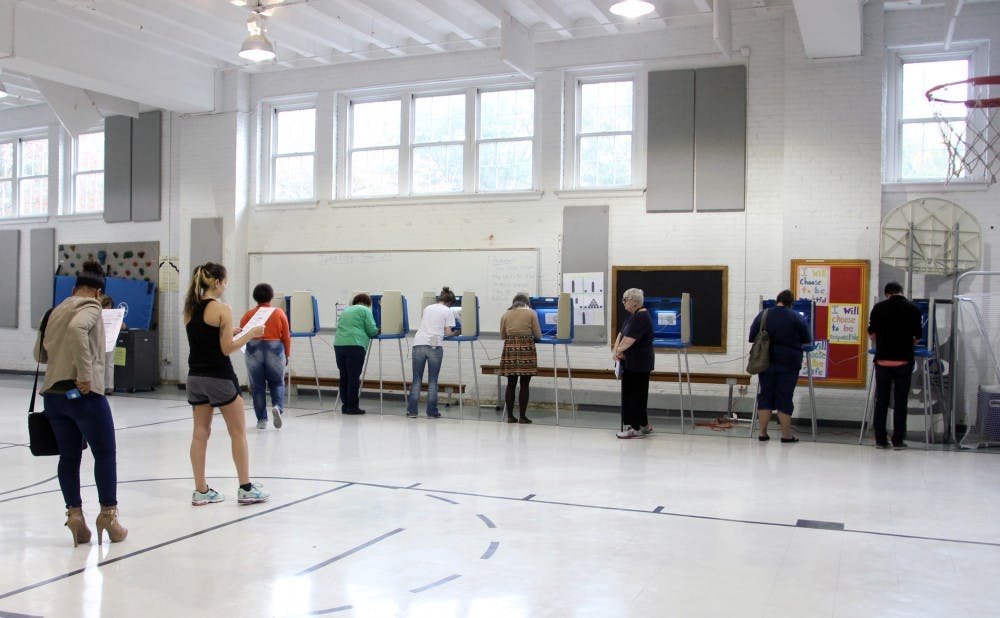Issues with faulty registration and confusion over precinct assignments frustrated some North Carolina voters on Election Day.
A number of students and local residents were turned away from voting locations on Election Day, due in part to the voting laws passed last year eliminating out-of-precinct voting and same-day voter registration.
Some students, unaware of which precinct they had been assigned to, waited in lengthy lines at multiple voting locations before finding out at which they were legally able to vote. Others—who had thought they had undergone the process of registering to vote—could not find their names in the registered voters list and were told they could not vote at all.
“The whole process really wasn’t very accessible,” said Vanessa Floyd, Trinity '14, who drove to three different voting locations before she was able to vote due to confusion over her assigned precinct.
Others, like senior Nick Albertson, attempted to educate themselves about where to vote by using online resources through the North Carolina government, but found the process unclear.
“It took over an hour of searching online—none of the online voter lookup things had anything about me,” Albertson said. “I ended up calling the North Carolina polling office and had to wait on hold for a while. Then, when I arrived at the polling place, the lines were out the door.”
He also noted there were a large number of people at the voting location who had gone to the wrong precinct or whose registrations had been lost.
Freshman Abby Muehlstein said she had accidentally gone to the wrong voting precinct after putting down her mailing address rather than residential address down on her voter registration form.
“Only yesterday, when I tried to vote at the wrong place, [did I] realize that I was registered for the West Campus precinct instead of East,” she said.
Unlike Muehlstein, some students arrived at voting precincts only to discover they were not going to be able to vote anywhere in the state. Freshman Noah White said that he and several friends had registered with student representatives on campus, but found at the voting station that they were not registered at all.
Many voters who had gone to the wrong precinct were unaware of the specifics of the voting laws passed last year by the N.C. state legislature to address voter fraud. The Voter Information Verification Act shortened early voting from 17 days to 10, required registered voters to vote in their assigned precinct and ended same-day voter registration and pre-registration for high school students.
The law will require voters to present a government-issued photo ID to vote starting in 2016.
Despite the passing of the voting laws, the new policies have elicited criticism and faced legal challenges from civil rights groups and Democrats, who allege that the laws disproportionately affect college-age and minority voters—who make up a substantial proportion of early voters and are often less likely to carry acceptable forms of identification.
Approximately 100,000 North Carolinians, one-third of whom were black, voted using same-day registration in 2012, according to a U.S. Court of Appeals for the Fourth Circuit report. In early October, the U.S. Supreme Court allowed the state to implement the tighter voting regulations, blocking a lower court's ruling.
Allegations that the voting laws had been enacted to block black voters and other groups traditionally more supportive of Democratic candidates were “likely” to be true, said David Rohde, Ernestine Friedl professor of political science.
He also noted that there was little evidence to suggest there had been a significant amount of voter fraud to begin with.
“I have absolutely no idea why [the laws] were thought to be necessary or desirable,” Rohde said. “It’d be hard to say if they were [effective] for something that didn’t exist in the first place.”
Get The Chronicle straight to your inbox
Signup for our weekly newsletter. Cancel at any time.

